Audits, while essential for maintaining the integrity and trustworthiness of an organization’s financial reporting, can be a daunting task. This is not just because of the intricacies and specificities required by the auditing standards but also due to the numerous challenges faced by organizations in the run-up to an audit. These challenges include resource limitations, complexity of accounting standards, volume of transactions, weak internal controls, stakeholder expectations, and much more.
With adequate preparation, the process can be made seamless. This article will delve deeper into five preparation steps, drawing from insights of our leading industry experts, to help your organization gear up for a successful audit. These five steps are below.
1. Implement Robust Documentation Procedures
Maintaining organized records is paramount for any organization, necessitating a systematic approach to filing and ensuring easy access to crucial documents like financial statements, general ledgers, bank statements, and invoices. Additionally, it’s imperative to collate and have on hand key agreements, ranging from debt agreements and leasing arrangements to more intricate transaction documents and pivotal contracts with major customers or vendors. Beyond these, it’s important to comprehensively document processes, risks, and controls, with a keen focus on meeting SOX compliance criteria, thereby bolstering transparency and accountability in all financial reporting endeavors. To further streamline these tasks, employing electronic document management systems is recommended. Such digital solutions not only enhance the ease of retrieving vital documents but also facilitate the seamless sharing of these records with auditors.
2. Streamline Internal Controls and Regular Testing
Establishing a solid control framework is fundamental for organizations, with the adoption of recognized standards such as COSO or ISO serving as a guide for ensuring standardized procedures. Within this framework, it’s paramount to thoroughly document processes, risks, and controls, emphasizing the importance of comprehensive documentation that includes steps to achieve SOX compliance. Supplementing this documentation is the crucial step of training employees, which plays a key role in reducing the likelihood of unintentional errors. By ensuring that every member of the organization is well-informed and adheres to the established controls, a cohesive and error-minimized environment is fostered.
3. Conduct Comprehensive Account Reconciliations
Transitioning from a Cash basis to US GAAP accrual basis accounting is essential, providing a more accurate representation of an organization’s financial position. Alongside this, it’s important to review and be cognizant of any legal exposures and open litigations, ensuring that necessary accruals are recognized and documented to address potential liabilities. In tandem, preparing outstanding account reconciliations and rollforwards is a foundational step to guarantee that every transaction is captured and recorded with precision. Furthermore, the creation and maintenance of a transition from unadjusted to adjusted trial balances offer a transparent overview, with clearly identified adjustments, fortifying the overarching aim of financial accuracy.
4. Engage in Pre-audit Self-assessments
Creating a comprehensive project work plan, complete with a detailed timeline and activities, is pivotal for the audit process. Such a roadmap, by design, ensures that the audit’s execution is both smooth and methodical. Coupled with this, it’s essential to scope the audit work based on materiality calculations, directing attention to areas with substantial impact on the financial statements. As the preparatory phase progresses, it becomes imperative to review or complete all period-end accounting activities, ensuring that every aspect of accounting is current for each audit period.
Furthermore, in an era of intricate financial landscapes, preparing for compliance with complex accounting standards becomes non-negotiable. Standards like revenue recognition and lease accounting stand out, demanding rigorous attention. Equally critical is the meticulous analysis of accounting activities and balances, with a spotlight on accuracy and the evaluation of facets such as valuation, existence, and rights and obligations. To refine this process, the preparation of adjusted financial statements and their accompanying footnotes is essential, ensuring accurate presentation and comprehensive disclosures. Lastly, drawing up financial statement analytics serves as a guiding tool for auditors, providing them with a clear lens to understand financial trends and variances.
5. Maintain Open Communication with Auditors
To streamline the audit process, it’s imperative to prepare audit “PBC’s” (Provided By Client lists), consolidating all the necessary supporting documents, thereby simplifying the auditor’s task. Additionally, acting as a liaison with auditors cultivates a collaborative atmosphere, bridging the communication gap between the organization and its auditors. This spirit of cooperation is further enhanced by providing audit staff augmentation and interim resources, ensuring not only sufficient manpower but also the requisite expertise throughout the audit duration, ultimately optimizing the efficiency of the entire process.
Feeling Behind – You Are Not Alone
Preparing for an audit is a comprehensive task that goes beyond mere financial documentation. However, with proper planning and by implementing these steps and maintaining a proactive approach, organizations can ensure not only a smooth audit process but also position themselves as transparent and trustworthy entities in the eyes of their stakeholders.
If you are feeling behind when it comes to your audit readiness, you are not alone! Contact our Accounting team to learn more about how they can get your organization get ready.




